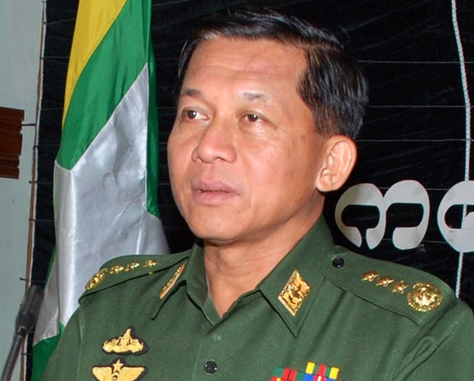Asked why some of the civilians who have been working with the Shan State Army (SSA) “North” are being charged under Section 17-1, for associating with unlawful organizations, a friendly defense ministry official replied that to the home ministry and defense ministry, armed movements that have signed truce with the government are still considered unlawful organizations.
 “Anyone who is associated with them, therefore, is liable to prison sentence up to 3 years under Section 17-1,” he was quoted as saying.
“Anyone who is associated with them, therefore, is liable to prison sentence up to 3 years under Section 17-1,” he was quoted as saying.
There is as yet no instructions from the President’s Office that the 13 armed movements that have concluded truce since last September be dropped from the list of unlawful organizations, he added. “Not only that, but as far as home and defense are concerned, the more than 2,000 names that were declared off the blacklist last month are still on the list.”
Point 9 of the 12 point agreement signed between Naypyitaw and Restoration Council of Shan State/ Shan State Army (RCSS/SSA) on 19 May 2012 stated: The two sides will continue to build up mutual trust to enable the RCSS/SSA to be totally withdrawn from the list of unlawful associations.
Point 11, meanwhile, said: The RCSS/SSA is free to hold political consultations with individuals, groups and communities throughout the country.
Several civilians working with the SSA “North” were detained by Burma Army troops last month. One of them Sai Kyaw Aye has been charged with Section 17-1. The SSA “North”, officially the Shan State Progress Party/ Shan State Army (SSPP/SSA), signed the ceasefire agreement on 28 January. But the group says it has already fought more than 30 clashes since.
According to both the SSA North and SSA South commanders, more fighting is the offing, as the Burma Army, despite the ceasefire agreements, has refused to suspend its “area clearing” and “area control” operations.
Ministers for defense, home and border affairs, according to the 2008 constitution, are appointed and dismissed by the armed forces chief and not by the President.



